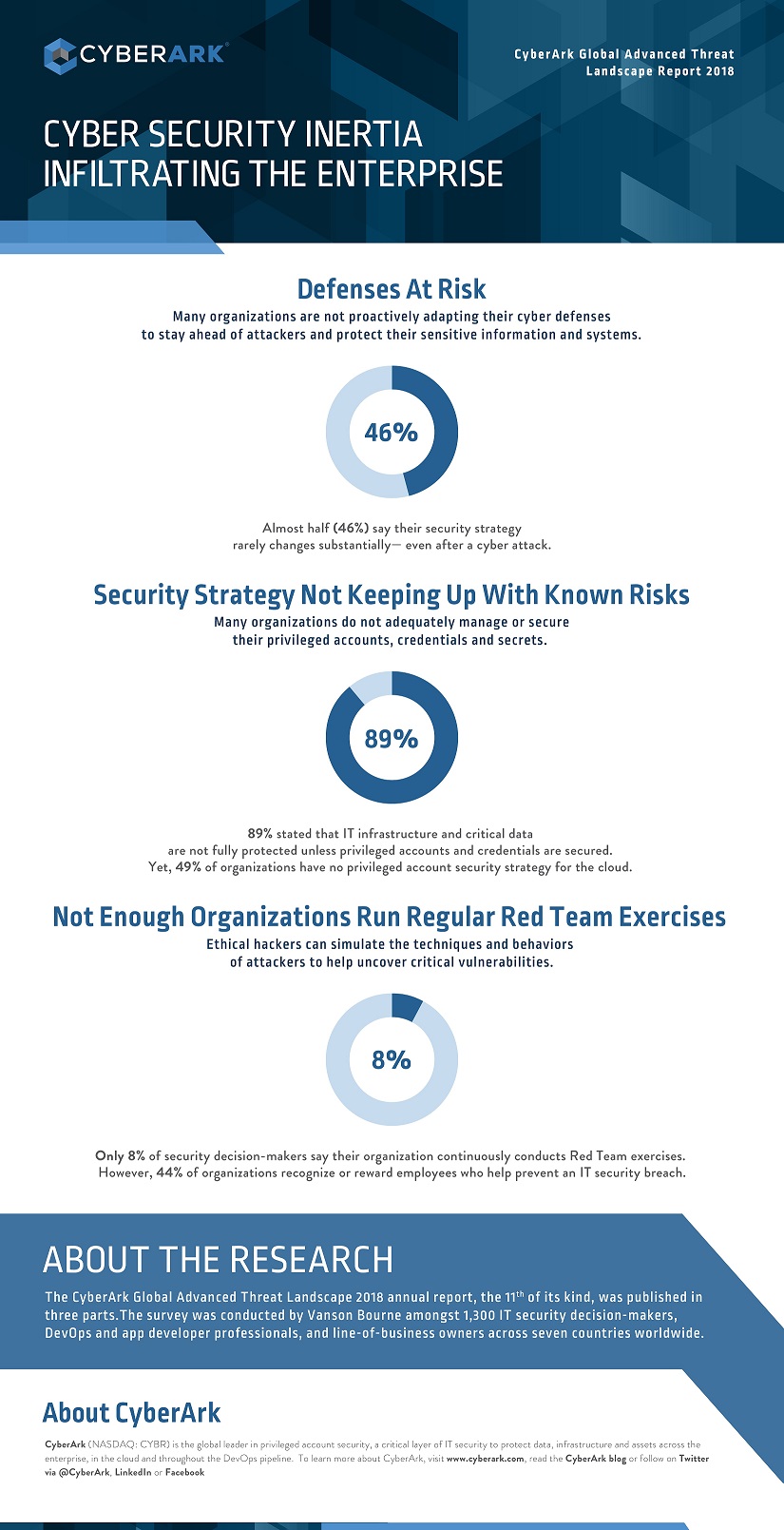StackGen has partnered with Google Cloud Platform (GCP) to bring its platform to the Google Cloud Marketplace.
It wasn't long ago when operations, development and security teams didn't talk to each other – and probably sat at different lunch tables in the cafeteria.
Fortunately, when it comes to operations and development, DevOps has changed the traditional compartmentalized style of development by eliminating silos. These teams recognize that operational considerations need to be factored into development decisions from the very beginning, and vice versa to achieve optimal performance.
But what about the security team? Security is largely still siloed from operations and development. No doubt, many DevOps teams have some security controls baked into their automation processes, but a recent survey shows there are still alarming gaps.
Survey Says: The Secret is Out
According to the 2018 CyberArk Global Advanced Threat Landscape report, fewer than half of DevOps survey respondents said DevOps and security teams are well integrated and 41 percent say security teams are only brought in at the end of the development cycle. It's hard to defend the notion that security is built into the DevOps process when most organizations admit that DevOps and security teams are not well integrated.
And while development and operations teams can be expected to be knowledgeable about security to a certain point, it is unreasonable to expect them to have the level of security expertise that security teams have acquired through years of experience. The lack of maturity when it comes to DevOps security is made apparent throughout the report.
Many DevOps teams run automatic vulnerability scans or take other measures to eliminate the low hanging security fruit. This is a great first step, but 75 percent of organizations reported they have no privileged account security strategy for DevOps. Even worse, 99 percent of respondents failed to identify the different places privileged accounts or secrets could exist in a DevOps environment.
Privileged accounts, secrets and credentials equal access to an organization's data and infrastructure. With this access, an attacker can impersonate anyone within the organization and take almost anything they want.
Infrastructure-as-code is the engine that fuels DevOps velocity. However, it also means that everything a DevOps team has done, institutional know-how and intellectual property can be more easily stolen.
Making the Case for DevOps Security
Attackers will exploit organizations where they are weak, making unsecured and unmanaged "secrets" – including privileged account credentials, SSH Keys, API keys and more – a new favorite target for attackers.
These secrets are often hardcoded in clear text or publicly accessible, making DevOps a massive security risk to organizations. Attackers know this and are currently exploiting these vulnerabilities and scanning for exposed SSH keys(link is external) across the internet.
Bottom line – DevOps has changed the game in terms of productivity, but security needs to be a part of the journey. The move from waterfall to agile development has taught us the most efficient time to make a change is at the beginning of the process, which is true of security too.
Security teams need to be included in the DevOps process from the beginning to reduce the cost of changes made later on. Security tools have evolved over time to meet DevOps security teams and not to disrupt DevOps flow or velocity. Any credible security solution will need the ability to be automated and have a small, if not invisible, footprint on DevOps teams.

Industry News
Tricentis announced its spring release of new cloud capabilities for the company’s AI-powered, model-based test automation solution, Tricentis Tosca.
Lucid Software has acquired airfocus, an AI-powered product management and roadmapping platform designed to help teams prioritize and build the right products faster.
AutonomyAI announced its launch from stealth with $4 million in pre-seed funding.
Kong announced the launch of the latest version of Kong AI Gateway, which introduces new features to provide the AI security and governance guardrails needed to make GenAI and Agentic AI production-ready.
Traefik Labs announced significant enhancements to its AI Gateway platform along with new developer tools designed to streamline enterprise AI adoption and API development.
Zencoder released its next-generation AI coding and unit testing agents, designed to accelerate software development for professional engineers.
Windsurf (formerly Codeium) and Netlify announced a new technology partnership that brings seamless, one-click deployment directly into the developer's integrated development environment (IDE.)
The Cloud Native Computing Foundation® (CNCF®), which builds sustainable ecosystems for cloud native software, is making significant updates to its certification offerings.
The Cloud Native Computing Foundation® (CNCF®), which builds sustainable ecosystems for cloud native software, announced the Golden Kubestronaut program, a distinguished recognition for professionals who have demonstrated the highest level of expertise in Kubernetes, cloud native technologies, and Linux administration.
Red Hat announced new capabilities and enhancements for Red Hat Developer Hub, Red Hat’s enterprise-grade internal developer portal based on the Backstage project.
Platform9 announced that Private Cloud Director Community Edition is generally available.
Sonatype expanded support for software development in Rust via the Cargo registry to the entire Sonatype product suite.
CloudBolt Software announced its acquisition of StormForge, a provider of machine learning-powered Kubernetes resource optimization.













